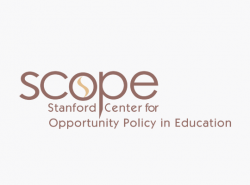What ESEA Should Do to Improve Teacher Quality and Equity: Judy Chu
Elected officials and education and civil rights experts discuss much-needed changes in federal education statutes to ensure equity and quality in low-income classrooms.
Elected officials and education and civil rights experts discuss much-needed changes in federal education statutes to ensure equity and quality in low-income classrooms.

In this research brief, Linda Darling-Hammond and colleagues look at how high-achieving countries organize professional learning for teachers to draw a set of policy lessons for the United States.

In this policy brief, Pasi Sahlberg details the key elements of Finland's successful education system, drawing lessons for reform in the United States.
This project supported multiple research efforts identifying and supporting equitable schools and examining teacher effectiveness and desegregation.
This project documents how the success of some California schools in closing the achievement gap can inform state policy.
This project examines how high achieving nations around the world have steeply improved student achievement and equity and to identify how those approaches can be replicated in the United States.
This comprehensive project on teacher professional development identifies policies and practices states are using to effectively prepare and support teachers.
The Alliance for Excellent Education and SCOPE teamed up to look at ways other nations have enhanced teacher effectiveness and to see if the lessons learned could be applied in the U.S. context, producing a report and a webinar on their findings.
This project examines eight exemplary pre- and in-service program models that address key issues in developing strong leaders.

Mary-Lou Donnelly examines equity in the Canadian education system, focusing on the roles that teachers and teacher organizations play in Canada's high-achieving schools.